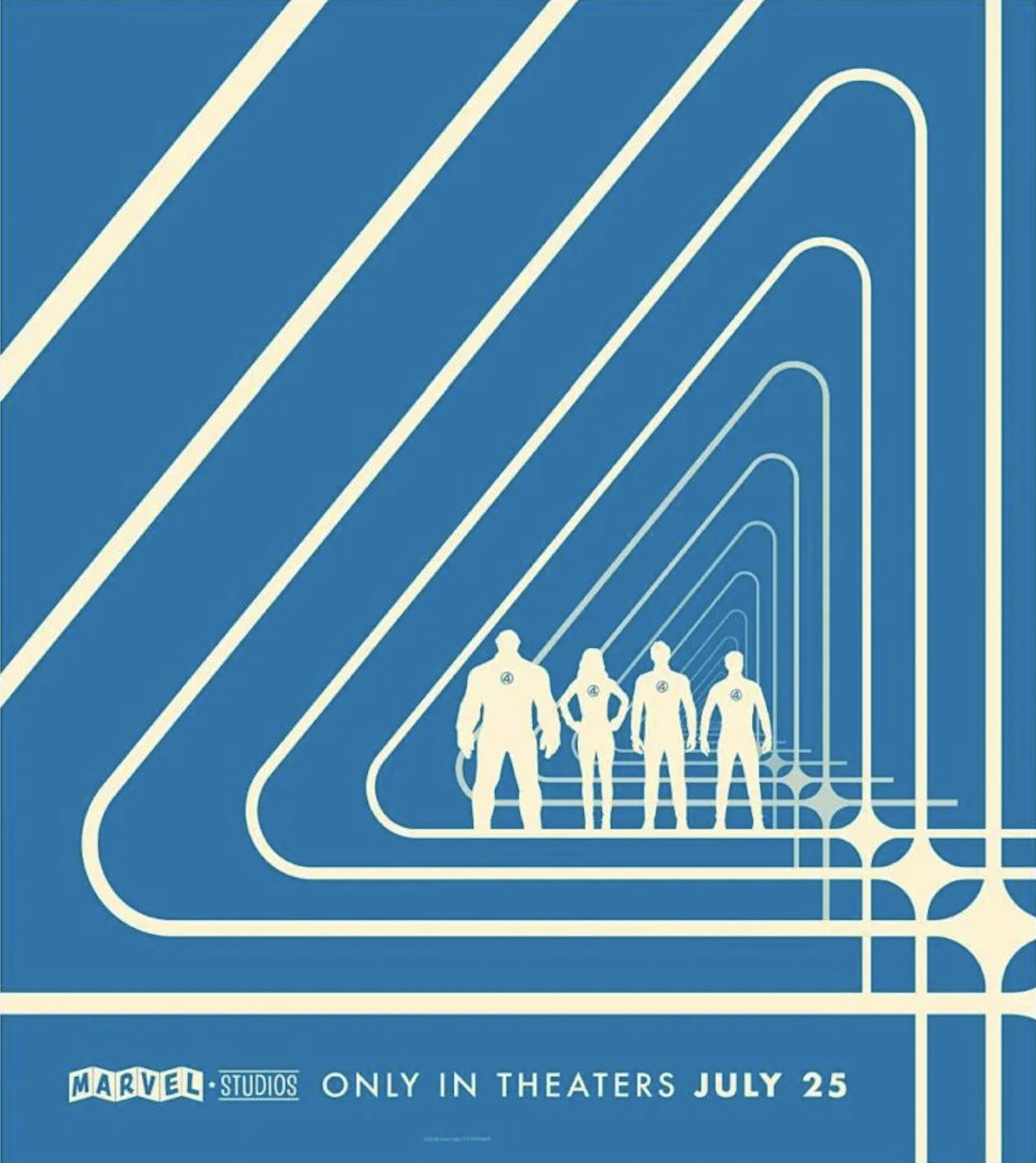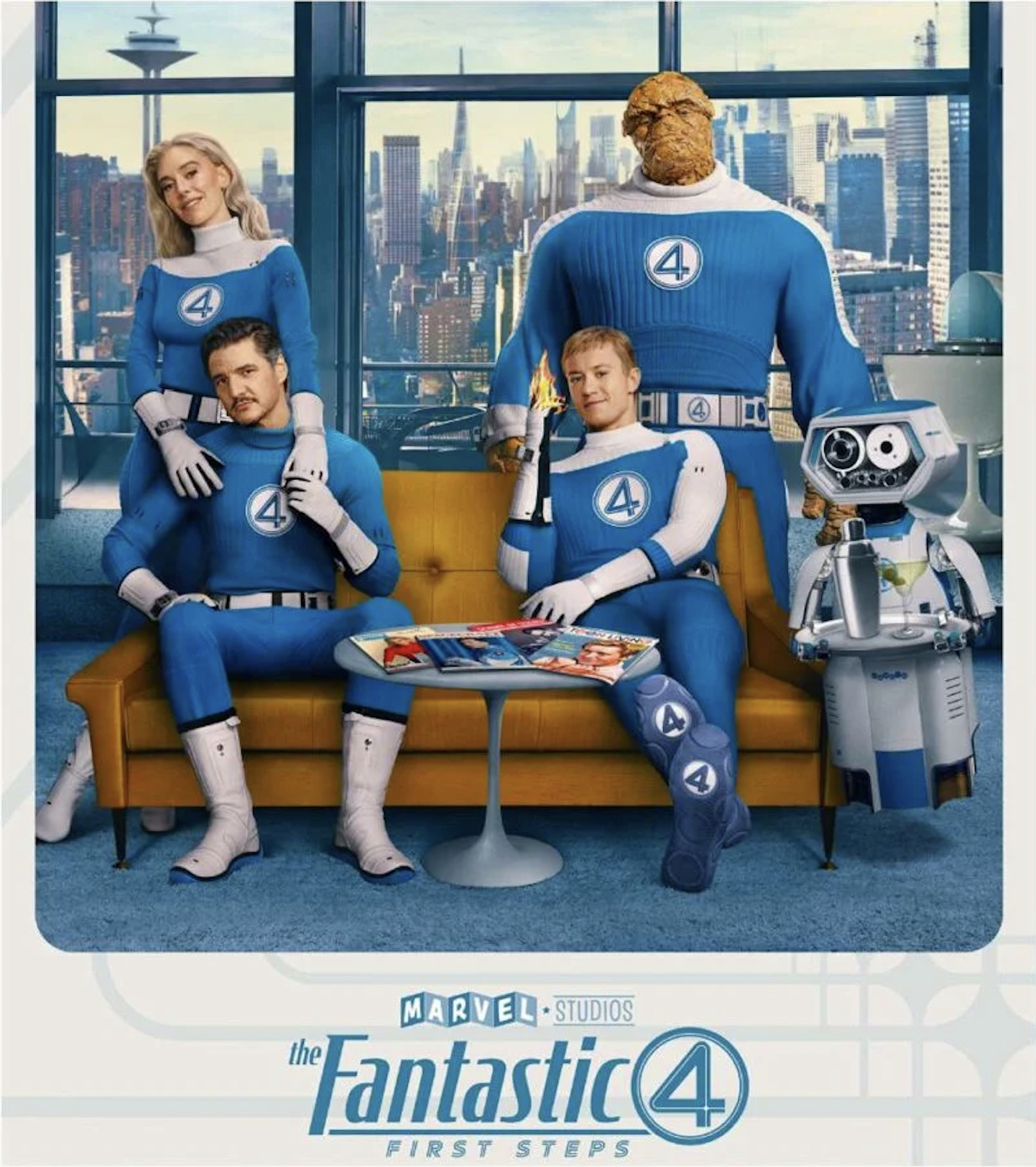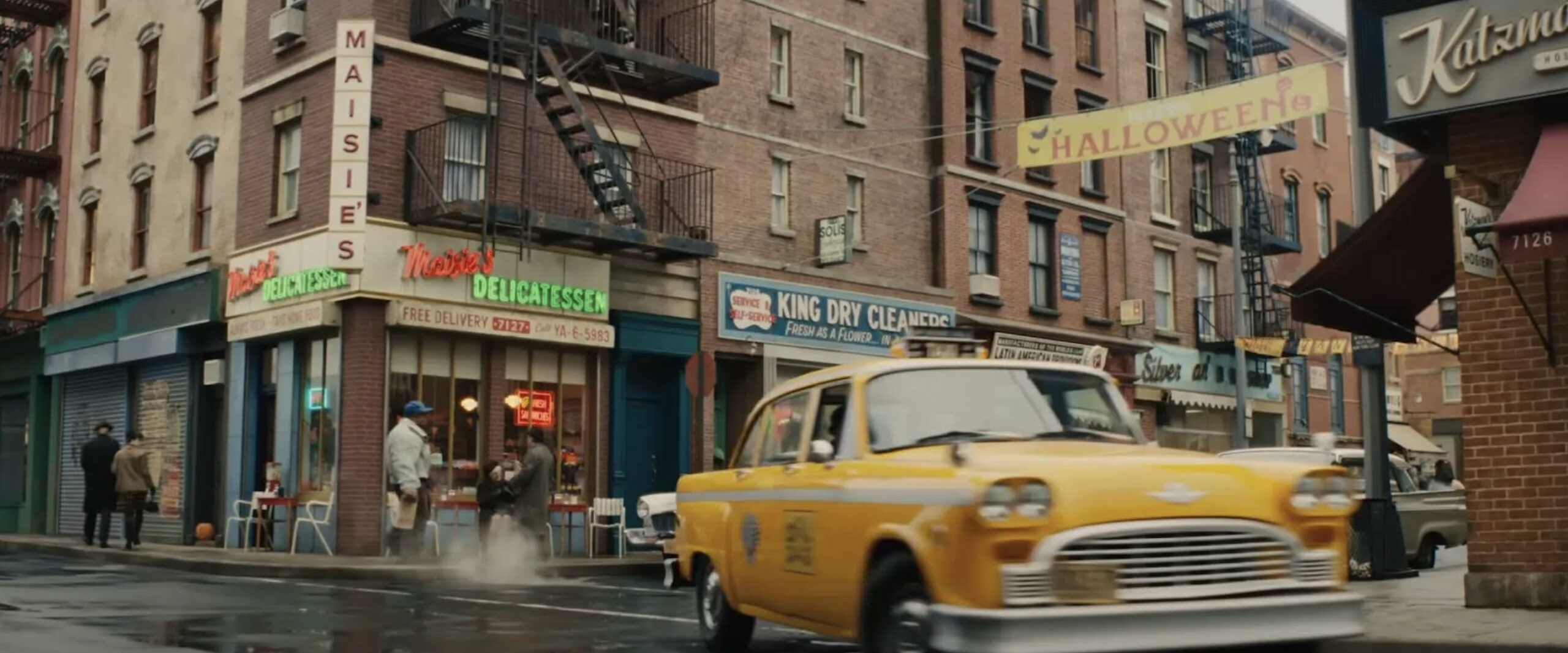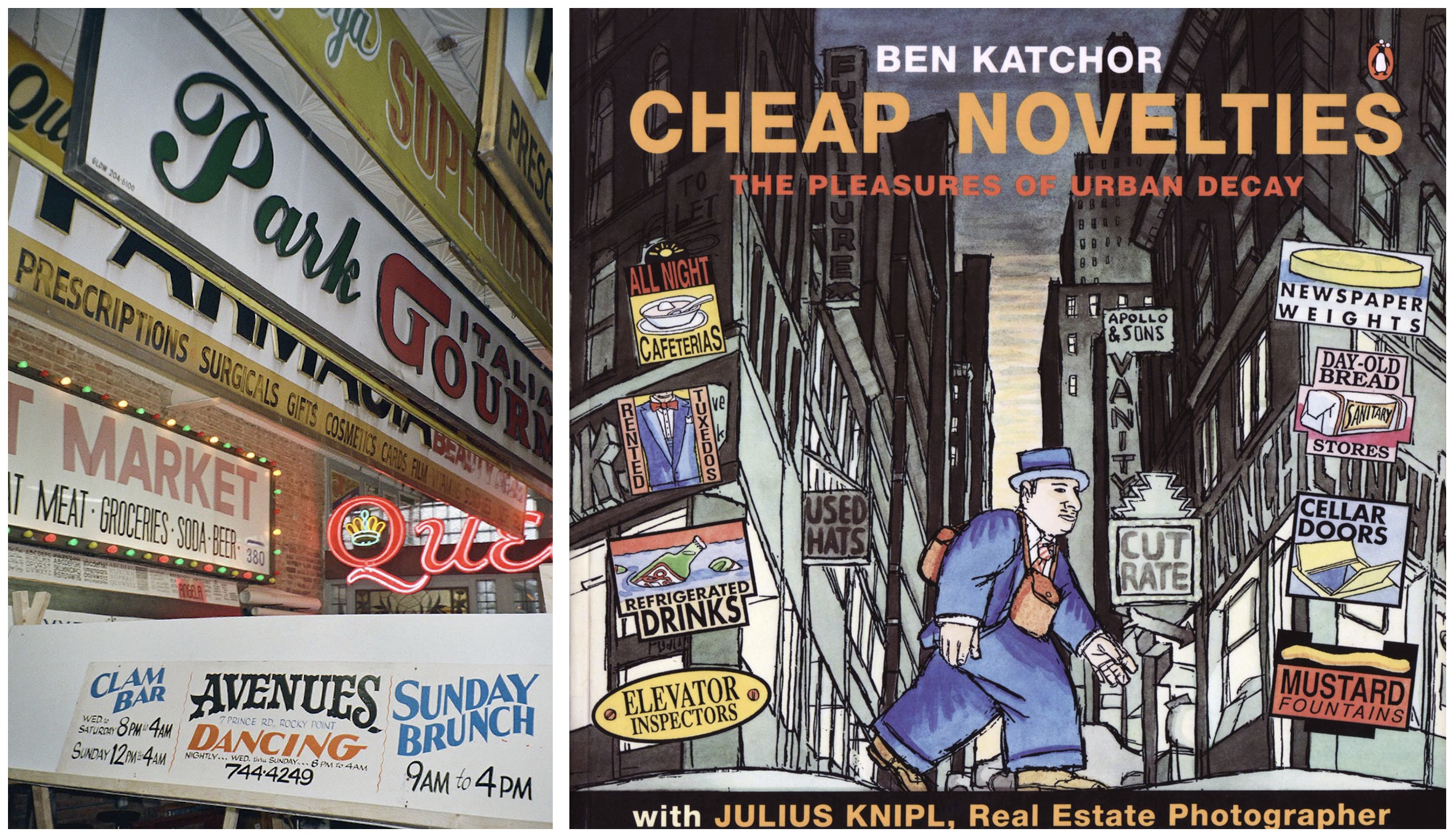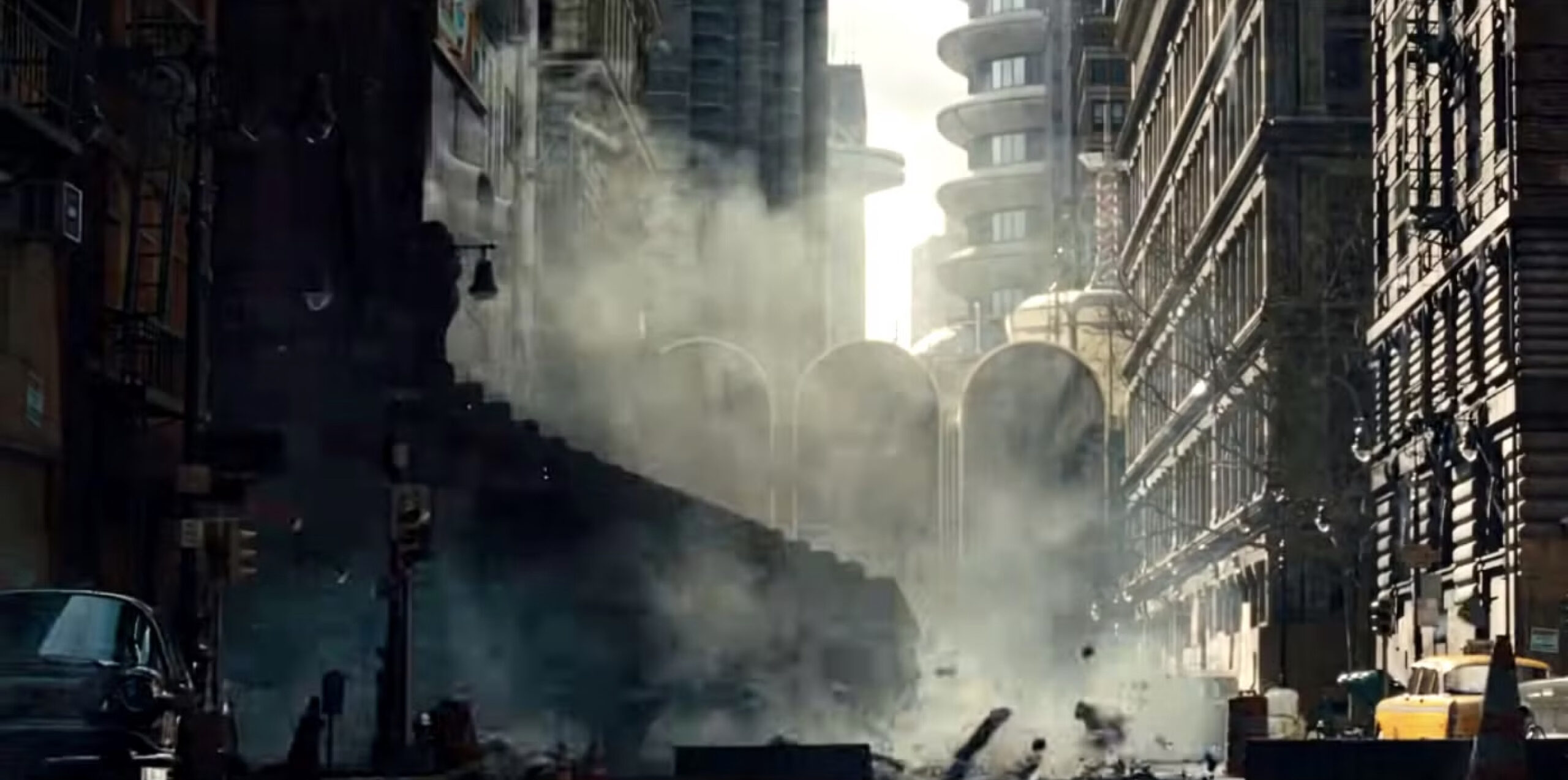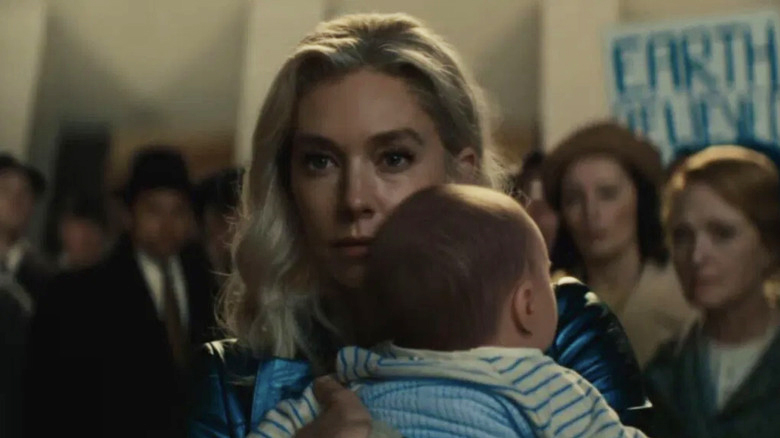OFF-TOPIC (71)
By:
July 29, 2025
Off-Topic brings you over-the-transom, on-tangent essays, dialogues and subjective scholarship on an occasional, impulsive basis. This session, a cinematic evening spent turning back new pages on a future with a second chance…
With its powder-keg politics and unfit President I thought of Captain America: Brave New World as the last (only?) film of the Biden era. And with its semi-reformed super-Blackwater-contractor protagonists and their Pam Bondi-esque boss Marvel’s Thunderbolts* felt like the first pop-cinema allegory of Trump 2’s China-style America, where government’s corruption and self-serving is assumed, advancement is based on favoritism or what you’ve got on someone, heroism is a matter of perception, and doing the right thing is something you stumble into or somehow get away with.
Then came Superman 2025, whose breakneck pace and tender character interludes were evocative of the chaotic news cycle with momentary detours and oases of reflection and caring (like that great heart-to-heart between Lois and Kal-El while the interdimensional squid-battle is unfolding like a looped TikTok vid right outside the window), half of the action occurring in Lex Luthor’s cosmic CECOT or his DOGE-like control room of morals-free Bros (and a few Sis’s, since this is a movie).
Considering when they must have been completed, both Thunderbolts* and Superman were showing a bit of prescience, while Fantastic Four: First Steps lives in a long-gone vision of how the country and world might have been. The FF belong in, or at least must always be portrayed as transplants from, the early-1960s culture they first emerged in, a time of optimism in social progress, trust in benevolent technology, and embrace of change (dramatized in their command of futuristic equipment, their pioneering flight into space, and their literal embodiment of transformation). The FF’s world is what they imagine it to be, and design is a character in First Steps, the team living amidst high-Mad Men modernity in what seems to be a mid-1960s America fast-forwarded to many 2020s innovations, conveniences and progressive ideas due to scientific and political breakthroughs the FF’s own public service helped spark.
This was the last time America unanimously thought itself “great,” and it’s interesting that half of First Steps’ utopian mise en scène is about things looking much older than they do now; on the street level we’re in the low-rise, brick landscape of pre-gentrified and -supersized New York, where signs are still hand-painted and most people wear hats; from the FF’s highrise we see spires that make it seem like the futurama of the 1964 World’s Fair spread throughout the whole city. There’s a melancholy in thinking that each look now feels retro and possibly irretrievable.
The city as palimpsest of memory, not sensory overload in the moment but accumulation of impressions across time, is materialized in streetscapes like the commotion of visual codes in cartoonist Ben Katchor’s Julius Knipl series or Metropolis magazine strips, or reliquaries like the NY Sign Museum (or even its Las Vegas counterpart); the expression of this fondness and mourning is mainstreamed like never before in Fantastic Four: First Steps.
Marvel has been smart in anchoring this movie not just in deeply rendered period context (and not at all in their previous movies’ and TV shows’ continuity) but in lore we are practically born with: Galactus’ connection to and coveting of Sue and Reed’s new child is the fundamental fear of medieval folklore (or the latest hour’s encounter between a family and the Border Patrol); he behaves like a wrathful deity of the Hebrew Bible era and before; the bravery and ordeal of Sue’s pregnancy is a drama that precedes history, though its focus on female heroism has been absent from most of the Western cultural canon. The predicaments the FF get into and try to get us out of resonate with our collective memory of everything from turn-of-the-last-century interplanetary adventures like John Carter, to Cold War-era armageddon thrillers like The Day the Earth Stood Still. All the visuals (logos, super-uniforms, sci-fi appliances, public platforms and glass towers) are keyed to a UN blue, the color of clear skies, of divinity, of Earth when seen from the right perspective.
The national mood is turning toward thoughts of what we can preserve, and the feeling of end-times stakes and an existential precipice is palpable in this film. Very uncommonly for blockbuster cinema, it has a sense of delicateness and elegy; we are conscious of the fragility of what the FF are defending, and the film’s themes of societies pulling together and everyone having a say, and the bumpy but navigable route to reconciling those two, are an understanding we long for. I want to go back to the theater multiple times and live in that world for two hours, and there’s a comfort in seeing that even the FF, in their perfect society, are facing profound problems. Also, there are reminders that it has not just its problems but its flaws, and there are even things we can do better in the world we actually have: when Reed confides in private to his baby son, “There’s always been something wrong with me,” we realize that, being frozen in a permanent JFK-era, the FF’s society may have rockets and optimism but it has no vocabulary for, say, accepting neurovariation like Reed’s; even if the good old days were still new, they wouldn’t be all good, and there’s good left to be done here too.
Fantastic Four: First Steps is a movie about what we think is missing, within and around us — the wrong roads taken and the memories we should have held on to — and how we can make up the difference to each other, and find things inside us we didn’t ever know were there.
MORE POSTS by ADAM McGOVERN: OFF-TOPIC (2019–2025 monthly) | textshow (2018 quarterly) | PANEL ZERO (comics-related Q&As, 2018 monthly) | THIS: (2016–2017 weekly) | PEOPLE YOU MEET IN HELL, a 5-part series about characters in McGovern’s and Paolo Leandri’s comic Nightworld | Two IDORU JONES comics by McGovern and Paolo Leandri | BOWIEOLOGY: Celebrating 50 years of Bowie | ODD ABSURDUM: How Felix invented the 21st century self | KOJAK YOUR ENTHUSIASM: FAWLTY TOWERS | KICK YOUR ENTHUSIASM: JACKIE McGEE | NERD YOUR ENTHUSIASM: JOAN SEMMEL | SWERVE YOUR ENTHUSIASM: INTRO and THE LEON SUITES | FIVE-O YOUR ENTHUSIASM: JULIA | FERB YOUR ENTHUSIASM: KIMBA THE WHITE LION | CARBONA YOUR ENTHUSIASM: WASHINGTON BULLETS | KLAATU YOU: SILENT RUNNING | CONVOY YOUR ENTHUSIASM: QUINTET | TUBE YOUR ENTHUSIASM: HIGHWAY PATROL | #SQUADGOALS: KAMANDI’S FAMILY | QUIRK YOUR ENTHUSIASM: LUCKY NUMBER | CROM YOUR ENTHUSIASM: JIREL OF JOIRY | KERN YOUR ENTHUSIASM: Data 70 | HERC YOUR ENTHUSIASM: “Freedom” | KIRK YOUR ENTHUSIASM: Captain Camelot | KIRB YOUR ENTHUSIASM: Full Fathom Five | A 5-part series on Jack Kirby’s Fourth World mythos | Reviews of Annie Nocenti’s comics Katana, Catwoman, Klarion, and Green Arrow | The curated series FANCHILD | To see all of Adam’s posts, including HiLo Hero items on Lilli Carré, Judy Garland, Wally Wood, and others: CLICK HERE

